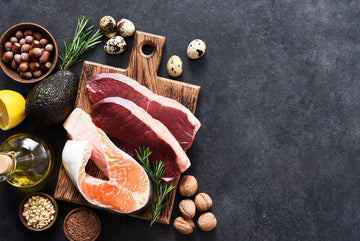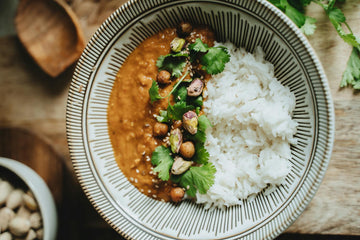Why do I need vitamin B12?
Vitamin B12 is needed for healthy nerves, red blood cells and building DNA.
Vitamin B12, also known as cobalamin, is an essential nutrient that helps the body create red blood cells and maintain a healthy nervous system. It is found in animal products, such as meat, fish, poultry, eggs, and dairy products. Vitamin B12 deficiency can cause anemia, fatigue, nerve damage, and mood disorders.
Here are some of the benefits of vitamin B12:
- Helps create red blood cells
- Maintains a healthy nervous system
- Prevents anemia
- Improves energy levels
- Boosts mood
- Improves cognitive function
You may need to take a supplement if you are not getting enough vitamin B12 from your diet. Talk to your doctor about whether you need a supplement and how much you should take.
How much vitamin B12 do I need?
| Women | Men |
| 2.4 mcg per day | 2.4 mcg per day |
19+ years
Vegetarians, especially vegans are at a higher risk of developing vitamin B12 deficiency as the majority of the food sources rich in vitamin B12 are of animal origin. Thus, it’s crucial for them to include vitamin B12 supplements in their diet.
Dr. Smita Barode, BAMS
What food is vitamin B12 in?
| Milk, 2% milkfat,1 cup | 1.3mcg | 54% |
| Yogurt, plain, fat free, 6-ounce/170 grams container | 1.0mcg | 43% |
| Cheese, cheddar, 1½ ounces/42 grams | 0.5mcg | 19% |
| Egg, whole, cooked, 1 large | 0.5mcg | 19% |
| lamb, beef, or veal liver – (100-gram) | – | 3,571% |
| lamb, beef, or veal kidneys-(100-gram) | – | 3,000% |
| Clams are small, chewy shellfish | 99mcg | 4,120% |

Hints and tips
- Dairy can be a main vegetarian source of vitamin B12. If using dairy-alternatives look for ones with added vitamin B12
- Supplements can be an easy way to make sure you have enough vitamin B12.
Vitamin B12… in more detail…
Vitamin B12 is a water-soluble vitamin with many essential functions in your body.
It’s necessary for keeping your nerves healthy and supporting the production of DNA and red blood cells, as well as maintaining normal brain function.
Vitamin B12 is absorbed in your stomach with the help of a protein called intrinsic factor. This substance binds to the vitamin B12 molecule and helps your blood and cells absorb it.
The Reference Daily Intake (RDI) is about 2.4 mcg but slightly higher for those who are pregnant or nursing.
Excess vitamin B12 is stored in your liver. If you consume more than the RDI, your body saves it for future use.












